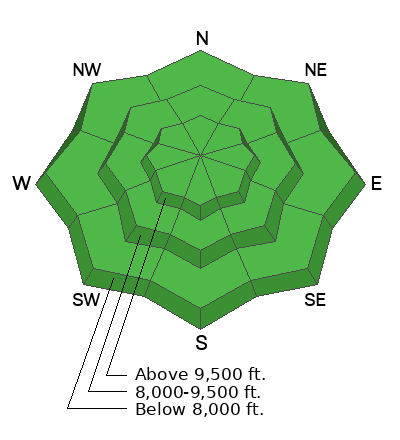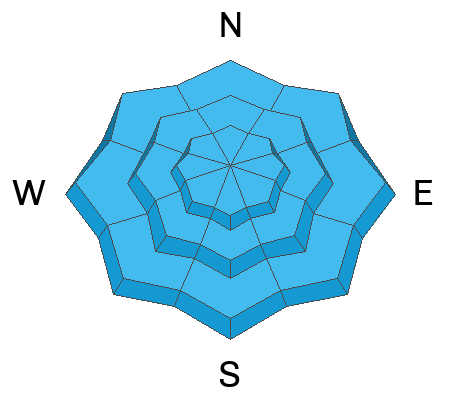Under the cold moon, skies are clear (ain't it a shame).
Mountain temperatures are in the teens. Winds remain from the northwest, blowing 15-20mph. The highest anemometers are spinning 20-25mph with gusts to 30.
Mid and high level clouds will accompany the weakest of warm fronts today. Winds will blow 20-25mph from the northwest. Mountain temperatures will rise to the upper 20s. I don't expect to see much -if any- precipitation, though a touch of rime wouldn't be out of the question.
The Outlook: Winds finally start to lose steam tonight with a warming trend on tap through the rest of the week. The weather models depict a few weak disturbances down the road that seem to lack much aim or direction. We'll see.
In the meantime, travel is easy, and skiing and riding conditions are quite good in sun and wind sheltered terrain.
None reported from the Provo mountains, although ski areas and backcountry riders were able to trigger shallow soft slabs 6-12" thick in steep wind drifted terrain. Slow but long running loose snow avalanches could also be triggered in the more wind protected terrain.









